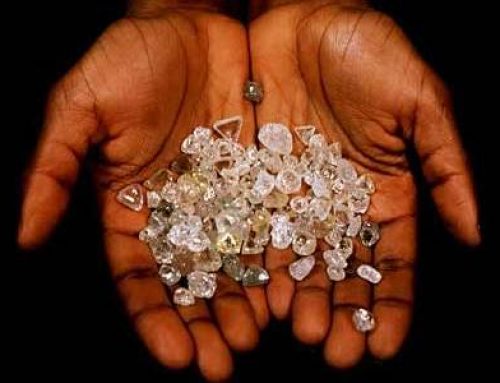For release 7th Dec 2011
With yesterdays announcement that Global Witness has removed itself form the Kimberley Process, UK jewellers are seeking answers to why contentious diamonds remain at the forefront of news as they enter the critical festive retail period.
The decision in November by the KP to allow exports of diamonds from certain mines in Zimbabwe rocked the international diamond industry. UK jewellers expressed concern over the decision and subsequently many have sought more assurances from their dealers on the provenance of the goods being imported.
Global Witness were among the founding bodies of the KP and their departure from the dialogue marks a significant shift in confidence that the KP may not be ‘fit for purpose’ in current global politics.
In May of this year, Global Witness met with the UK’s largest trade bodies; the National Association of Goldsmiths who represent over 2500 jewellery retailers and the British Jeweller’s Association, who’s 1000 members belong to manufacturing, trade and wholesale within the industry. The NAG and BJA formed a specialist Ethics Committee in March 2011, tasked with consulting between key UK and International trade and NGO bodies, as well as with the UK Government.
Global Witness gave valuable information about the current crisis in Zimbabwe and discussed the Kimberley process objectives. They expressed frustration that finding representatives of the artisanal miners was proving particularly difficult and it was clear that ensuring a balanced outcome for the diamond miners of Zimbabwe was going to be extremely challenging.
However, despite the withdrawal of Global Witness from the KP, the Ethics Committee maintains that the UK jewellery industry will continue to seek resolutions from the World Diamond Council on the matter and in the meantime recommend jewellers and retailers remain cautious about the origin of their diamonds.
Michael Hoare, CEO of the National Association of Goldsmiths said
“It’s important to retain consumer confidence in British made jewellery .The creation of the Ethics Committee is a commitment to effecting positive changes for the jewellery industry and ensuring that a regular dialogue between all parties is maintained”.
The BJA and NAG have long advocated their memberships take every reasonable precaution in diligently checking the provenance of the diamonds used in British made jewellery. Today, the Ethics Committee announced an evaluation of the UK response to the recent developments and will assess concrete steps which UK jewellers can take to protect their integrity from the Zimbabwe stones which have attracted the ‘Blood Diamonds’ label by KP critics .
The value of understanding the intricate supply chains in UK jewellery manufacture extends into all aspects of diamonds, coloured gems and precious metals.
In recent months the Ethics Committee have met with the Fairtrade Foundation and the London Bullion Market Exchange, where current standards to ensure best practice in both newly mined and refined or recycled gold were examined.
Simon Rainer, CEO of the British Jewellers Association said
“The UK industry is at the forefront of traceability; working towards the creation of recognisable standards to define transparency in jewellery supply chains”.
-Ends-
Notes to Editors
CONTACT VIVIEN JOHNSTON vivien@fifibijoux.com, 07789224705
The British Jewellers’ Association has united with The National Association of Goldsmiths to support access to ethical supply chains and chain- of- custody objectives for their members.
Realising that many small businesses are faced with substantial challenges when trying to break down the components of their supply chains and assess ethical credentials, the BJA and NAG have committed to take the lead for UK jewellery manufacturers and retailers.
The committee wish to build a concrete policy and guidelines that meet the high standards required for responsible and transparent trading in the UK market
Both associations have connections with RJC and CIBJO and are mindful of their contribution to the debate, but act in the best interests of their respective members.
The NAG & BJA‘s ethics working committee will assess the feasibility of a system of auditable standards covering the following areas:
- Mining
- Metals
- Diamonds
- Gemstones
- Manufacturing
- Retailing.
The Ethics Committee will tackle each field and call on experts for an open and frank information exchange in order to develop a robust system in the UK jewellery industry. Vivien Johnston, founder of ethical jewellery brand Fifi Bijoux, has been appointed to steer the project.
Greg Valerio, winner of the Observer Ethical Campaigner Award for his work to bring Fair Trade gold to market, has pledged his support for the realisation of the standards.
Photos of Simon Rainer, CEO of BJA; Vivien Johnston; founder of Fifi Bijoux and Chair of Ethics Committee; Michael Hoare, CEO of NAG, Greg Valerio, founder of CRED Jewellery & Fair Jewellery Action, available on request.



Leave A Comment
You must be logged in to post a comment.